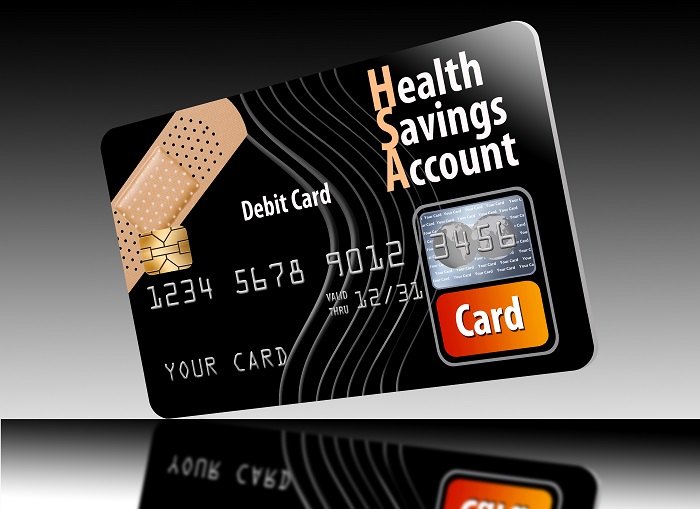 Affordable health care continues to be an important concern of Americans. Many Democrats are advocating “Medicare for All” as a solution, although the details of a Medicare for All system are still being developed and it's unclear whether a proposal can be developed that all Democrats would support. Republicans can try to score political points by criticizing the Medicare for All concept, but they need to develop their own proposal. Republicans cannot just rely on advocating for the repeal of Obamacare; that approach didn't work in 2018 and it will not work leading into the 2020 elections. Over the last few months, the Trump Administration has provided some indication of its position on health care reform. Consumer directed health plans like health savings accounts (HSAs), flexible spending arrangements (FSAs) and health reimbursement arrangements (HRAs), appear to be an important component in the Trump Administration's health care reform plans.
Affordable health care continues to be an important concern of Americans. Many Democrats are advocating “Medicare for All” as a solution, although the details of a Medicare for All system are still being developed and it's unclear whether a proposal can be developed that all Democrats would support. Republicans can try to score political points by criticizing the Medicare for All concept, but they need to develop their own proposal. Republicans cannot just rely on advocating for the repeal of Obamacare; that approach didn't work in 2018 and it will not work leading into the 2020 elections. Over the last few months, the Trump Administration has provided some indication of its position on health care reform. Consumer directed health plans like health savings accounts (HSAs), flexible spending arrangements (FSAs) and health reimbursement arrangements (HRAs), appear to be an important component in the Trump Administration's health care reform plans.
The Trump Administration's fiscal year 2020 budget request, entitled “A Budget for a Better America,” shows the continued support of health savings accounts by the Administration in providing over $40 billion in increased spending by expanding access to HSAs. The budget proposes that all plans with an actuarial value of up to 70 percent may be integrated with HSAs. This would enable consumers to utilize the benefits of HSAs with a larger number of innovative plan designs. In addition, the budget proposal would give Medicare beneficiaries with high deductible health plans the option to make tax deductible contributions to an HSA.
The budget proposal also states that the Administration is looking at ways of reforming the health care system (away from the Affordable Care Act enacted during the Obama Administration) and it mentions the Graham-Cassidy-Heller-Johnson bill (GCHJ bill) proposed in September 2017 as a template for reform. The GCHJ bill contained a number of provisions to expand HSAs and reverse some of the provisions in the ACA that adversely impacted consumer directed health accounts, so by supporting the GCHJ bill, the Trump Administration is supporting those additional changes.
The Trump Administration's support for consumer directed health plan in its budget request follows a report in December 2018 by the U.S. Departments of the Treasury, Health and Human Services, and Labor entitled “Reforming America's Healthcare System Through Choice and Competition,” which supported the use of consumer directed health plans as a means of reforming America's health care system.
The report also outlines several legislative changes that could be made to increase the use of HSAs that include:
- Allowing innovative insurance products (such as those that provide payment for generic drugs below the deductible or fixed fee payments for primary care) to be coupled with HSAs;
- Allowing individuals enrolled in a health insurance plan with a 70 percent actuarial value or below to contribute to an HSA;
- Raise the contribution limits to HSAs; and,
- Developing price and quality transparency initiatives to ensure consumers make well -informed healthcare decisions.
The budget proposal and the recommendations of the Treasury, Labor and Health and Human Service Departments would require legislative action to become effective. With the House of Representatives controlled by Democrats, it is unlikely that the recommendations of the Trump Administration will be advanced in the House. However, the Trump Administration is also advancing consumer directed health plans through the regulatory process.
The Administration has made regulatory changes that allow more flexibility under the ACA rules, such as the changes expanding access to association health plans for employers and many self-employed individuals, extending the duration and renewability of short-term limited duration Insurance. The Administration has also proposed new regulations to allow employers to offer HRAs to employees for purchasing individual market coverage and for employers to be able to offer “stand-alone HRAs” to their employees and these regulations may be finalized later this year. In addition, the Treasury Department and Internal Revenue Service are exploring whether they can issue guidance which would allow HSA-compatible high deductible health plans to pay costs for treatment of certain chronic illnesses and other types of treatments as preventive care. The fact that the lawyers at Treasury and IRS are looking at these issues shows the commitment of the Trump Administration to advancing consumer directed health plans.
By looking at the proposals advanced by the Administration and the regulatory efforts by the Administration, it is clear that the Trump Administration is fully supportive of consumer directed health plans. As a result, employers and their workers should feel comfortable offering and participating in these plans.
Bill Sweetnam is Legislative and Technical Director at ECFC, a leading non-profit organization dedicated to maintaining and expanding employee benefit programs on a tax-advantaged basis.
© Touchpoint Markets, All Rights Reserved. Request academic re-use from www.copyright.com. All other uses, submit a request to [email protected]. For more inforrmation visit Asset & Logo Licensing.






